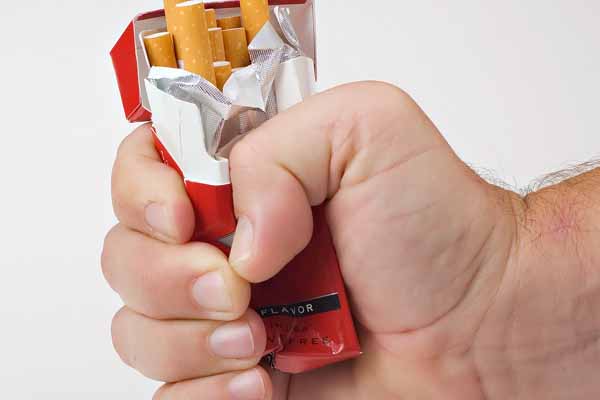
With the help of a $2 million funding increase approved by state legislators in 2023 and backed by the Texas Medical Association, the Texas Department of State Health Services (DSHS) will expand its tobacco cessation services, giving physicians additional resources to help patients struggling with nicotine addiction.
New enhancements to the Texas Tobacco Quitline program will broaden nicotine replacement therapy from two to eight weeks and incorporate new tracks specific to patient needs.
“The leading cause of preventable disease and death is tobacco use,” said Jennifer Shuford, MD, DSHS commissioner. “Some of the illnesses associated with tobacco use include cancer, heart disease and stroke, along with increased risks for stillbirth and sudden infant death syndrome. The expansion of Texas Tobacco Quitline services means more Texans can access tools that can increase the probability they can finally quit using tobacco.”
According to DSHS, roughly 10,000 patients used the cessation services in 2023, which target all tobacco products, including cigarettes, cigars, chewing tobacco, and dip, as well as tobacco-free nicotine devices, like e-cigarettes and vapes.
Physicians and health care professionals can access the portal via paper fax, YesQuit.org, and through their electronic health record systems.
Various tracks cater to specific patient needs, including:
- A general track for ages 18 and older,
- A pregnant/postpartum track for ages 18 and older,
- A behavioral health track for ages 18 and older, and
- A digital youth program for ages 13-17.
Replacement therapy medications offered through the quit line include nicotine patches, gum, and lozenges, says Megan Moran, manager of the DSHS tobacco, asthma, and cancer branch. Individualized coaching also is available, and the phone hotline remains open on an as-needed basis to patients who have completed their eight-week program.
“These increased services provide a quick and easy way for physicians to help their patients battle nicotine addiction,” Ms. Moran said. “Our health care providers are valuable partners in tobacco cessation and can effectively assist and motivate people in quitting any type of tobacco product. If physicians spend even three minutes with their patient talk about [tobacco use], it can really improve health outcomes.”
Texas Tobacco Quitline services are free and confidential, and language services are provided. Physicians can email DSHS with questions.
“We always welcome feedback,” Ms. Moran said.
Health Reporter, Division of Communications and Marketing
(512) 370-1392